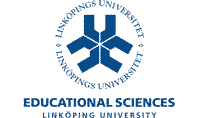|
|
| |
| SYLLABUS |
| Introduction to Special Education, Part 1 ,
7,5 ECTS Credits |
| |
COURSE CATEGORY Fristående kurs
MAIN FIELD OF STUDY
SUBJECT AREA Special Education
|
|
COURSE CODE |
|
913G01 |
|
| AIM OF THE COURSE |
On completion of the course, the student should
- have acquired knowledge of central special educational concepts such as normality, deviation, differentiation, segregation, inclusion and integration.
- have developed understanding of special education activities and special education approach.
- be able to analyse starting-points for special education activities based on theoretical models and viewpoints.
- have developed a problem-oriented approach to special education activities.
- know of and be able to communicate with different professional groups within special education activities. |
| CONTENTS |
| The course focuses on special education as a concept and phenomenon. Special education and special education activities are studied from both a historical and present-day perspective, and the encounters between the society and school and the pupils in need of specific support are central contents. Different theoretical perspectives describing and interpreting special education activities and approaches are studied, analysed and discussed. As examples, categorical, relational, critical and dilemma perspectives may be mentioned. The cooperation between different actors and departments around pupils in need of specific support is an important part of the contents of the course. |
| TEACHING |
Lectures and seminars are included in the course. In the student's preparations, literature studies, planning and discussion in working groups are included prior to presentations in study groups and reporting both orally and in writing.
Compulsory parts
Seminars with presentations of literature and/or assignments are compulsory. |
| EXAMINATION |
The course is examined continuously through presentations of both individual and group assignments and active participation in seminars. Examinations are both oral and written. In the examination, the student should present actively conducted contacts with different cooperation partners in special education activities. The written examinations take the form of take-home examinations.
Students failing an exam covering either the entire course or part of the course two times are entitled to have a new examiner appointed for the reexamination.
Students who have passed an examination may not retake it in order to improve their grades. |
| ADMISSION REQUIREMENTS |
At least two completed semesters in a teacher education, higher education qualifications from teacher education or service certificate that confirms student caring work, such as educational psychologist, school nurse or counsellor. |
| GRADING |
| A grade of Pass with Credit, Pass or Fail is given for the course |
| CERTIFICATE |
| Course certificate is issued by the Faculty Board on request. The Department provides a special form which should be submitted to the Student Affairs Division. |
| COURSE LITERATURE |
|
The course literature is decided upon by the department
in question. |
| OTHER INFORMATION |
Planning and implementation of a course must take its starting point in the wording of the syllabus. The course evaluation included in each course must therefore take up the question how well the course agrees with the syllabus.
The course is carried out in such a way that both men´s and women´s experience and knowledge is made visible and developed. |
| |
Introduction to Special Education, Part 1
Introduktion till specialpedagogik, del 1 |
| |
Department responsible
for
the course or
equivalent:
IBL - Department of Behavioural Science and Learning |
| |
|
|
|
|
|
| Registrar No: 242/07-41
|
|
Course Code: 913G01 |
|
|
|
| |
|
Exam codes: see Local Computer System |
|
|
|
| Subject/Subject Area : |
|
|
|
|
|
| |
|
|
|
|
|
| Level |
|
Education level |
|
|
Subject Area Code |
|
Field of Education |
|
| G2X |
|
Basic level |
|
|
UV2 |
|
SA |
|
|
The syllabus was approved by the Board of Educational Sciences 2006-11-28
|
|
|
| |
